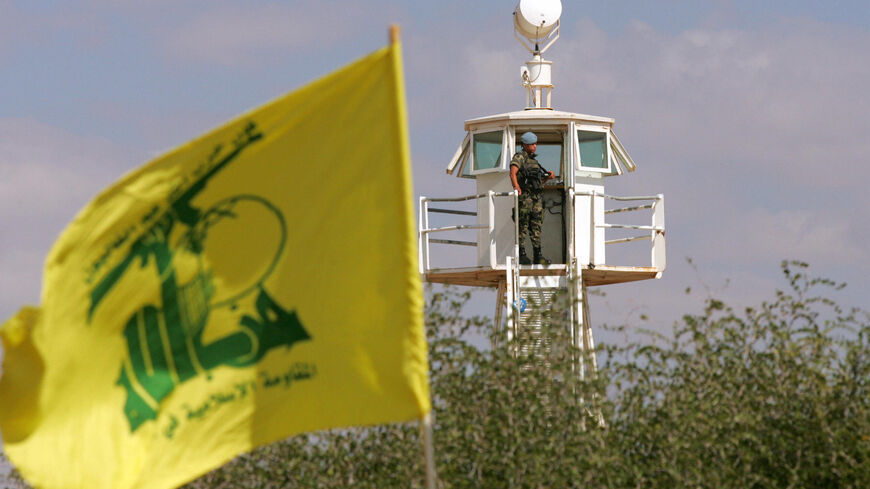The Biden administration imposed sanctions Tuesday on three alleged financial facilitators for Hezbollah in a move aimed at disrupting the Lebanese militant group’s illicit sources of funding.
The US Treasury Department targeted Adel Diab, Ali Mohamad Daoun and Jihad Salem Alame for allegedly raising and laundering funds for Iran-backed Hezbollah. Their company, Dar Al Salam for Travel & Tourism, was also sanctioned.
“Hezbollah claims it supports the Lebanese people, but just like other corrupt actors in Lebanon that Treasury has designated, Hezbollah continues to profit from insulated business ventures and backdoor political deals, amassing wealth that the Lebanese people never see,” said Brian Nelson, Treasury’s undersecretary for terrorism and financial intelligence.
Diab, Daoun, Alame and their company were sanctioned under Executive Order 13224, which allows the Treasury to block the assets of those who commit or pose a significant risk of committing acts of terrorism. The United States designated Hezbollah as a foreign terrorist organization in 1997.
The sanctions come as the small Mediterranean country experiences its worst economic crisis since the 1975-1990 Lebanese civil war. The United States and other foreign donors have called on Lebanon to enact long-promised reforms in order to receive further financial assistance.
Hezbollah’s “widespread network of financial facilitators has helped the group exploit Lebanon’s financial resources and survive the current economic crisis,” the Treasury said in a statement.
In October, the Biden administration sanctioned two wealthy Lebanese businessmen and a member of parliament accused of enriching themselves at the expense of the Lebanese people. In coordination with Qatar, the administration in September sanctioned a Hezbollah financial network based in the Arabian Peninsula.
Senate Foreign Relations Committee Chairman Bob Menendez (D-N.J.) and ranking member Jim Risch (R-Idaho) applauded the recent designations, but have called on the administration to go a step further by complementing the European Union’s framework for targeted Lebanon sanctions.






